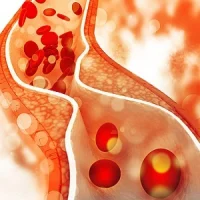Amidst increasing evidence showing that the risk of death is higher after stent postdilation is performed in patients with acute coronary syndrome (ACS), an opinion piece in The American Journal of Cardiology warns against unnecessary use of postdilation in ACS patients.
The article, written by a team of Chinese researchers from Wuhan University and Fudan University, notes that the increased risk of death associated with postdilation has been demonstrated in the U.S. National Heart, Lung and Blood Institute (NHLBI) Dynamic Registry, as well as the post hoc analysis of the BASE ACS trial.
Interestingly, Karjalainen et al., who analysed data from the BASE ACS trial, conclude that stent postdilation is useful in treating ACS. However, the AJC article does not agree with the finding. As the Chinese authors state, "in our opinion, this is an uncritical acceptance of stent postdilation at face value without considering the increased risk of death."
The Chinese team argues that, based on the data, the risk of death is higher after stent postdilation. Specifically, the risk of cardiac death was higher in postdilation arm (multivariate adjusted hazard ratio [HR] 1.83, 95% confidence interval [CI] 0.83 to 4.04, p = 0.12); the risk of noncardiac death was also higher in the postdilation group (multivariate adjusted HR 1.58, 95% CI 0.82 to 3.07, p = 0.17). The lack of statistical significance here, the team says, may most probably result from small number of events.
Using a composite end point of cardiac death or noncardiac death will gain better statistical power, they explain. "Here, the risk of death (including cardiac and noncardiac death) was significantly higher in the postdilation group than the non-postdilation group (odds ratio 1.72, 95% CI 1.02 to 2.88, p = 0.04)," the authors write. "Thus, the data in this study indeed warn against, instead of favouring, unnecessary use of stent postdilation in treating ACS."
In addition, there is molecular evidence underlying this detrimental effect of stent postdilation in ACS patients, according to the AJC article. One recent study showed a significantly increased level of plasma B-type natriuretic peptide after stent postdilation, which is a biomarker for heart failure. Further, stent postdilation was associated with increased levels of troponin I and high-sensitive C-reactive protein, suggesting more myocardial injury and inflammation.
Again, the cumulative evidence does not favour the use of postdilation in the treatment of ACS patients, the AJC article points out.
Source: The American Journal of Cardiology
Image Credit: jill570641
References:
Zhang, Zhi-Jiang et al. (2017) Risk of Death Is Higher After Stent Postdilation in Patients With Acute Coronary Syndrome. The American Journal of Cardiology. doi.org/10.1016/j.amjcard.2017.05.007
Latest Articles
acute coronary syndrome, cardiac death, ACS, Stent Postdilation
Amidst increasing evidence showing that the risk of death is higher after stent postdilation is performed in patients with acute coronary syndrome (ACS), an opinion piece in The American Journal of Cardiology warns against unnecessary use of postdilation










